The brain is one of the most vital organs of the body because it controls virtually all functions from thinking, movement to breathing, digestion, beating of the heart and so much more.
The importance of a healthy brain can therefore not be underestimated.
So, what about when things go south like hearing there’s excess water in the brain? How’s there water in the brain to begin with?
A substance called Cerebrospinal Fluid (CSF) is produced in the brain. It is responsible for strengthening the brain by feeding it nutrients needed for proper function and sieves out waste too.
CSF flows freely in the brain and is emptied in the bloodstream. However, there are times when a blockage occurs in the head and this causes CSF to accumulate thereby causing the head to become enlarged which is Hydrocephalus.
Hydrocephalus is prevalent in children at birth or in their early years. It also occurs in full-grown adults.
I shared my story previously about being born with Hydrocephalus at birth, the struggles I’ve had living with the condition especially having seizures, and how none of it has stopped me from forging ahead with life.
My miracle and recovery has empowered me to share stories of others living with the condition because they need to be heard to bring hope, inspiration and change in negative attitude and habits towards this category of people.
A mother realising her child has Hydrocephalus is a very tough one to take especially if it’s not detected early enough and that was the case for Modupe Ajayi, a doctorate degree holder in Animal Science, University of Ilorin and her daughter named Didunloluwa or Didun for short.
Didunloluwa was born on July 22, 2017, and was living a happy life until her mother started noticing something strange about her third child and daughter.
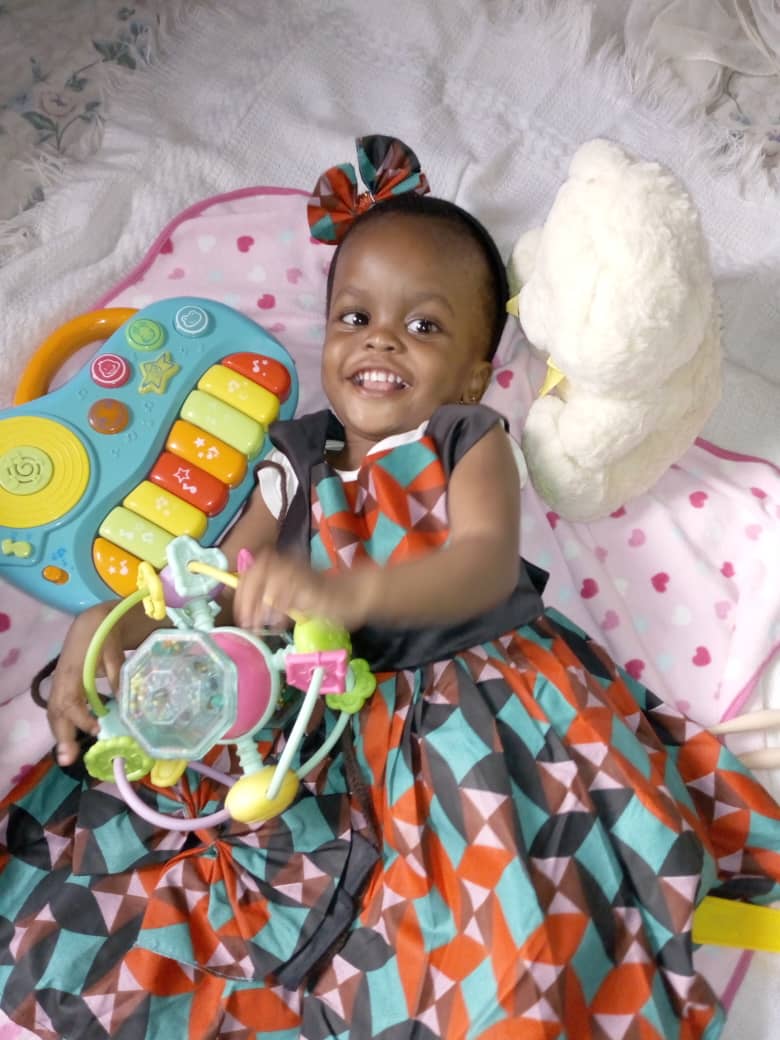
“She usually had this lengthy sleep pattern that gave me freedom as a mother but in January 2018, I noticed she was exceptionally irritable, but I didn’t think much about it,” Modupe says.
“Didun has always been an early riser so I was concerned on this fateful day when she slept throughout the day waking up at intervals like someone out of a deep sleep slumber. I took her to a nearby pharmacist who declared her OK but the mother’s instincts in me kept telling me something wasn’t just right. I took her to the hospital where I gave birth to her and she was diagnosed with Meningitis.
“She came out of the deep sleep but kept staring into space oblivious of her surroundings. After seven days on antibiotics with no response to treatment, we were told to go for a Transfontanell Scan where it was discovered she had excess water in the brain.”
Modupe was starstruck by hearing her lovely daughter had water in her brain and was simply asking questions how that was possible.
“I was dumbfounded and speechless when the lab technician said to me: “Madam, your daughter has excess water in the brain,” Modupe narrated.
“The first thing that came to my mind was how did water get in the brain? He said madam take the report back to the doctors and they will explain better. That is how our journey with Hydrocephalus began.”
Coming to terms that Didun had Hydrocephalus was a big struggle for Modupe because her world more or less came crashing down.
Hydrocephalus is commonly controlled by performing a surgical procedure where a tube-like device called Shunt, is inserted into the head to allow Cerebrospinal Fluid flow without any obstruction.
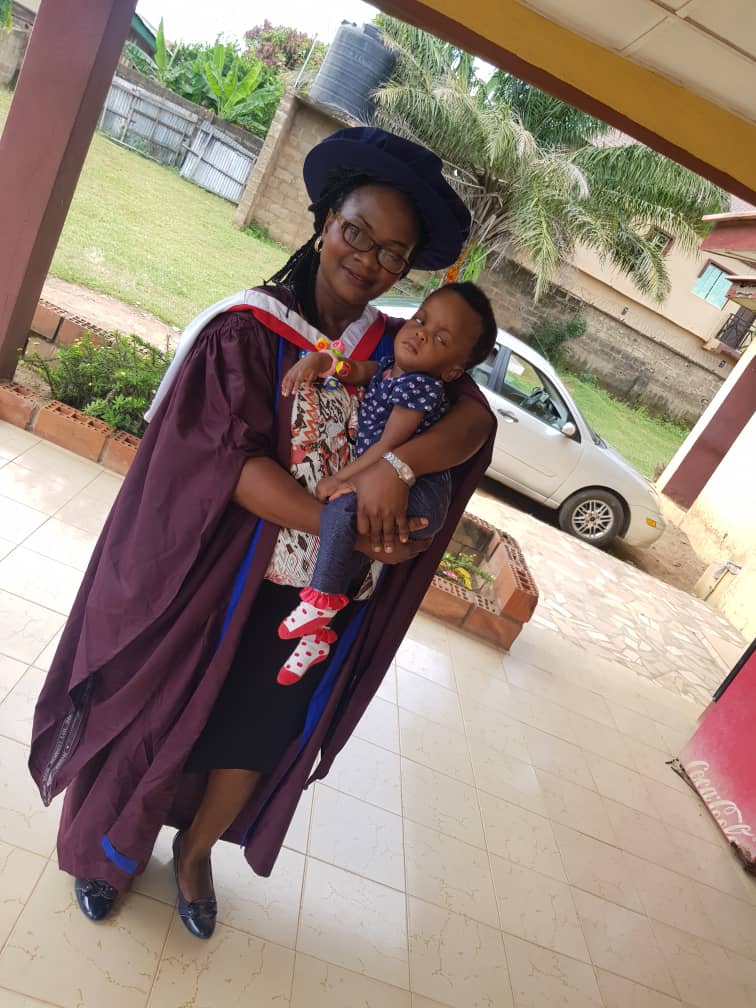
Didun’s Shunt placement surgery first failed and she developed a severe infection, the kind that not many babies survive from and according to Modupe, it was a thin line between life and death for her daughter.
“I can’t forget what a neurosurgeon told me [prior to the second Shunt placement], “count yourself blessed, not many children survive this kind of infection but your daughter is winning.”
It was really a lot to deal with for Modupe at that time. She was about rounding up her PhD program and because of Didun’s state of health then, Modupe had to forgo juicy and lucrative job offers in a bid to attend to her daughter. Modupe went bankrupt and just wanted to end it all by killing herself. She however did well in moving from denial to accepting the fate of her daughter to make things better for the young child.
Modupe also had to deal with rejection from within her closed circles, people who were not ready to associate with her because of her child’s condition.
“Having a child with Hydrocephalus is not as worse as having the society reject and judge her personality because of her condition,” Modupe explained.
“People started wagging their tongues saying all sorts of things that it [Didun’s Hydrocephalus] was all my fault.
“Confusion, fear and insecurity set in as I began to feel abandoned and rejection even from within closed circles. Since I couldn’t understand what I was going through, it became much harder for those viewing from afar.
“When reality dawned on me l left the denial phase, moved to the acceptance phase, accepted the condition by faith, sought medical intervention and began to seek for more knowledge to manage the condition and vowed to do my best and leave the rest to God.”
It’s not been an easy path to growth for Didun since the Shunt was fixed a second time. Now four years old, Didun has had developmental delays such as poor neck control, sitting posture and coordination which in turn affects physical and cognitive development. All of these are symptoms of Hydrocephalus but they do improve over time with the help of different therapies to improve coordination, balance, motor and cognitive skills, something her mother has been aggressively pursuing.
In spite of Didun’s developmental delays, she has still achieved some milestones such as being able to hear and track objects. With the aid of occupational therapy and physiotherapy, she has better neck control, her muscle tones are less spastic, and her cognitive skills are improving and she now attends pre-school.
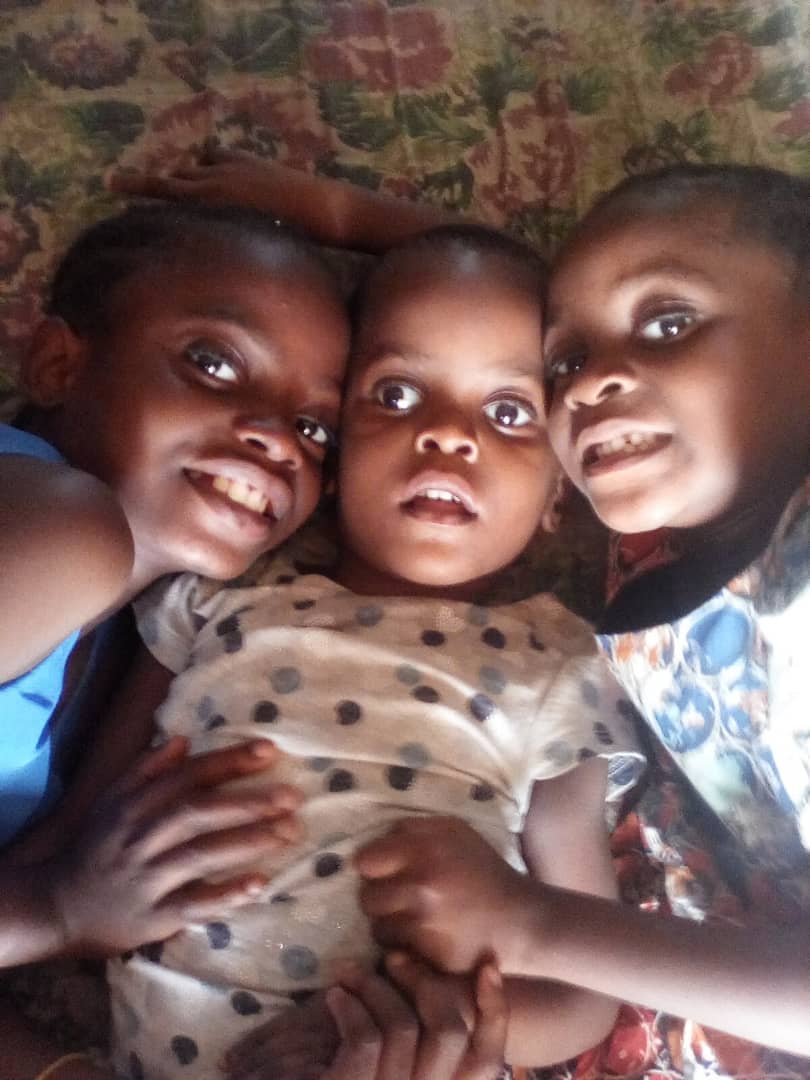
Didun’s improvement health-wise has now seen her being loved once again by those who had negative attitudes and feelings towards her and her mother after the Hydrocephalus diagnosis. Didun is most loved by her immediate family where her two elder sisters named Demilade and Diamond, have embraced her with so much love which she clearly feels. This same warmth is also extended at Didun’s preschool.
Modupe admits she still has fears about her daughter living with Hydrocephalus, as it is a condition that is managed for life. That however does not stop those living with it from living life to their potentials and dreams and this is what Modupe is holding on to about Didun. In fact, Didun’s continuously-improved response to treatment and therapy keeps erasing negative thoughts in her mother’s mind.
Determined to make a living in spite of missing golden opportunities just to take care of Didun, Modupe has relaunched herself by establishing Janey Treats, a registered Nigerian company in the line of quality food and confectionary production.
Modupe has also been on an advocacy journey ever since she became more knowledgeable about Hydrocephalus and is on a mission to reorientate and bring hope to mothers who have children living with Hydrocephalus.
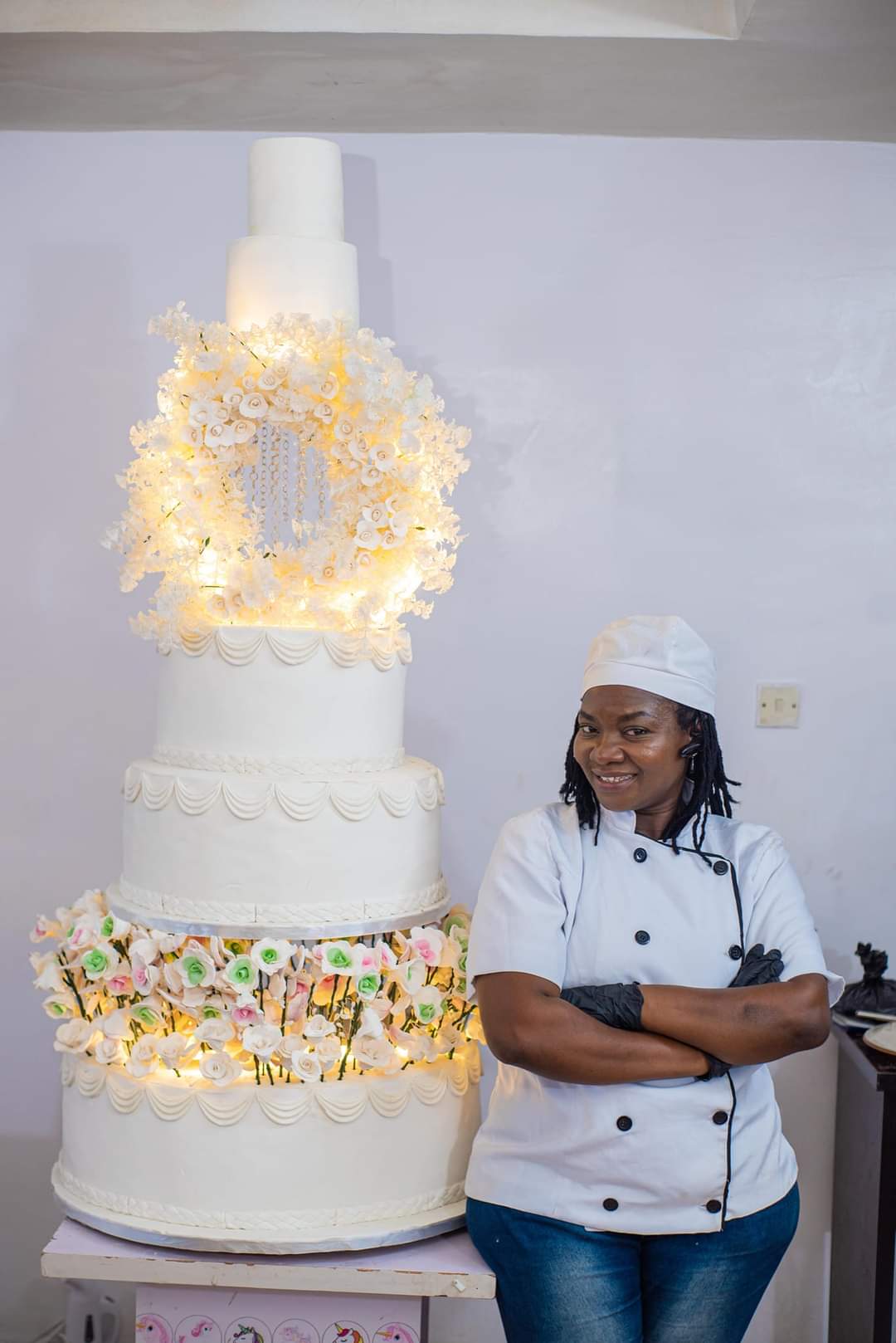
She concludes with a word of advice to those parents.
“Hydrocephalus is not the end of the world, it is simply the beginning. My advice is that you find people who accept you and forge ahead,” she says.
“My advice to parents is to fully accept their child. Our children are only given one life and it is up to us and only us to make it count.
“In sharing my daughter’s story, I hope to inspire you to smile through your trials, whether they be with Hydrocephalus or any other challenges you may face.”
Originally written in Vanguard on July 22, 2021, on the occasion of Didunloluwa’s fourth birthday, titled: ‘How PhD graduate mother nearly committed suicide after her baby was diagnosed with ‘excess water in the brain’
Didunloluwa sadly passed away on January 15, 2023, at the age of five after a bout of seizures. Regardless of the setback which is painful, it has not weakened her mother’s resolve to advocate for and empower mothers with children living with Hydrocephalus.
Death is inevitable at some point but it does not stop hope, courage, faith and empathy from being strengthened. Modupe can be reached via:
Phone/WhatsApp: +234 (0) 806 408 7215
Instagram: @dupetheadvocate
Facebook: Modupe Janet Ajayi
Email: dupetheadovocate@gmail.com

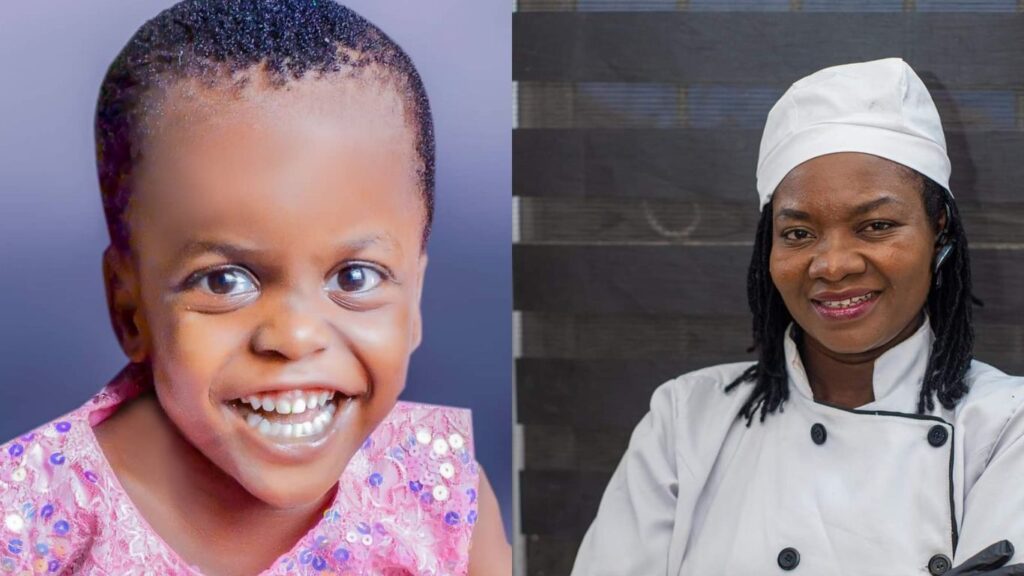
Keep resting, champ!
We love and miss you 💓
Yes, we really do miss her.
Keep resting, champ 💓
❤️
Hmmmm well done super mom, may her soul continue to rest in peace. You have really tried ma, u are really a strong woman
Indeed, she went through a lot to give her daughter the best of care.
This is amazing
Keep resting Didun
My DR… We love you
Thank you.